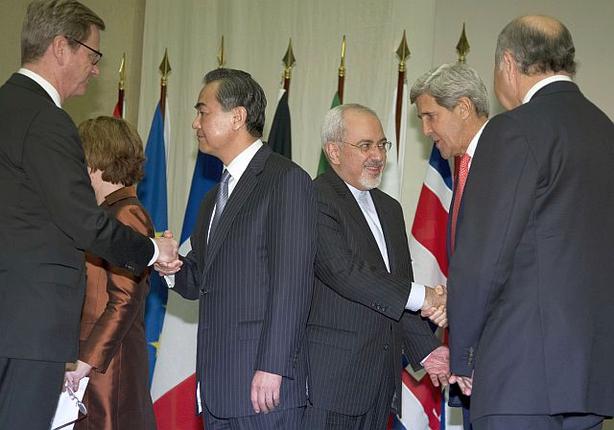Dubai, November 24: Iran has struck a historic agreement with the U.S. and five other world powers, accepting strict constraints on its nuclear programme for the first time in a decade in exchange for partial relief from sanctions.
The deal, signed at 4.30 a.m. on Sunday, marks arguably the most significant foreign policy achievement of Barack Obama’s presidency, amounting to the most significant agreement between Washington and Tehran since the 1979 Iranian revolution.
The move is intended as the first step in a six-month process aimed at a permanent resolution to the decade-old global impasse over Iran’s nuclear programme, and heading off the threat of a new war in West Asia.
“While today’s announcement is just a first step, it achieves a great deal,” President Obama said in an address from the White House. “For the first time in nearly a decade, we have halted the progress of the Iranian nuclear programme, and key parts of the programme will be rolled back.”
The Geneva deal releases just over $4 billion in Iranian oil sales revenue from frozen accounts, and suspends restrictions on the country’s trade in gold, petrochemicals, car and plane parts.
In return, Iran undertakes to restrict its nuclear activities. Over the next six months it has agreed to:
• stop enriching uranium above 5 per cent, reactor-grade, and dilute its stock of 20 per cent-enriched uranium or convert it to oxide, which makes it harder to enrich further. The medium-enriched uranium, in its hexafluoride gas form, is relatively easy to turn into weapons-grade material, so it is a major proliferation concern.
• not to increase its stockpile of low-enrichment uranium.
• freeze its enrichment capacity by not installing any more centrifuges, leaving more than half of its existing 16,000 centrifuges inoperable.
• not to fuel or to commission the heavy-water reactor it is building in Arak or build a reprocessing plant that could produce plutonium from the spent fuel.
• accept more intrusive nuclear inspections by the International Atomic Energy Agency, including daily visits to some facilities.
Iran’s Gulf Arab adversaries, nervous of the rehabilitation of their long-standing regional rival, were tight-lipped about the agreement. Not so Israel, which warned that the agreement had made the world more dangerous.
The U.S. Secretary of State, John Kerry, and his Iranian counterpart, Mohammad Javad Zarif, spent much of the three rounds of negotiations since September, closeted together in intense discussions, a dramatic break from the previous 34 years when there was barely any official contact between the two countries.
Britain’s Foreign Secretary William Hague, French Foreign Minister Laurent Fabius and their German, Russian and Chinese counterparts, Guido Westerwelle, Sergey Lavrov and Wang Yi, also took part in a six-nation group mandated by the U.N. Security Council to handle the negotiations since 2006.
However, the key overnight sessions that clinched the deal involved Mr. Kerry, Mr. Zarif and EU’s foreign policy chief Catherine Ashton alone.
“This deal actually rolls back the programme from where it is today,” Mr. Kerry said. However, he added: “I will not stand here in some triumphal moment and claim that this is an end in itself.”
The bigger task, he said, was to go forward and negotiate a comprehensive deal.

